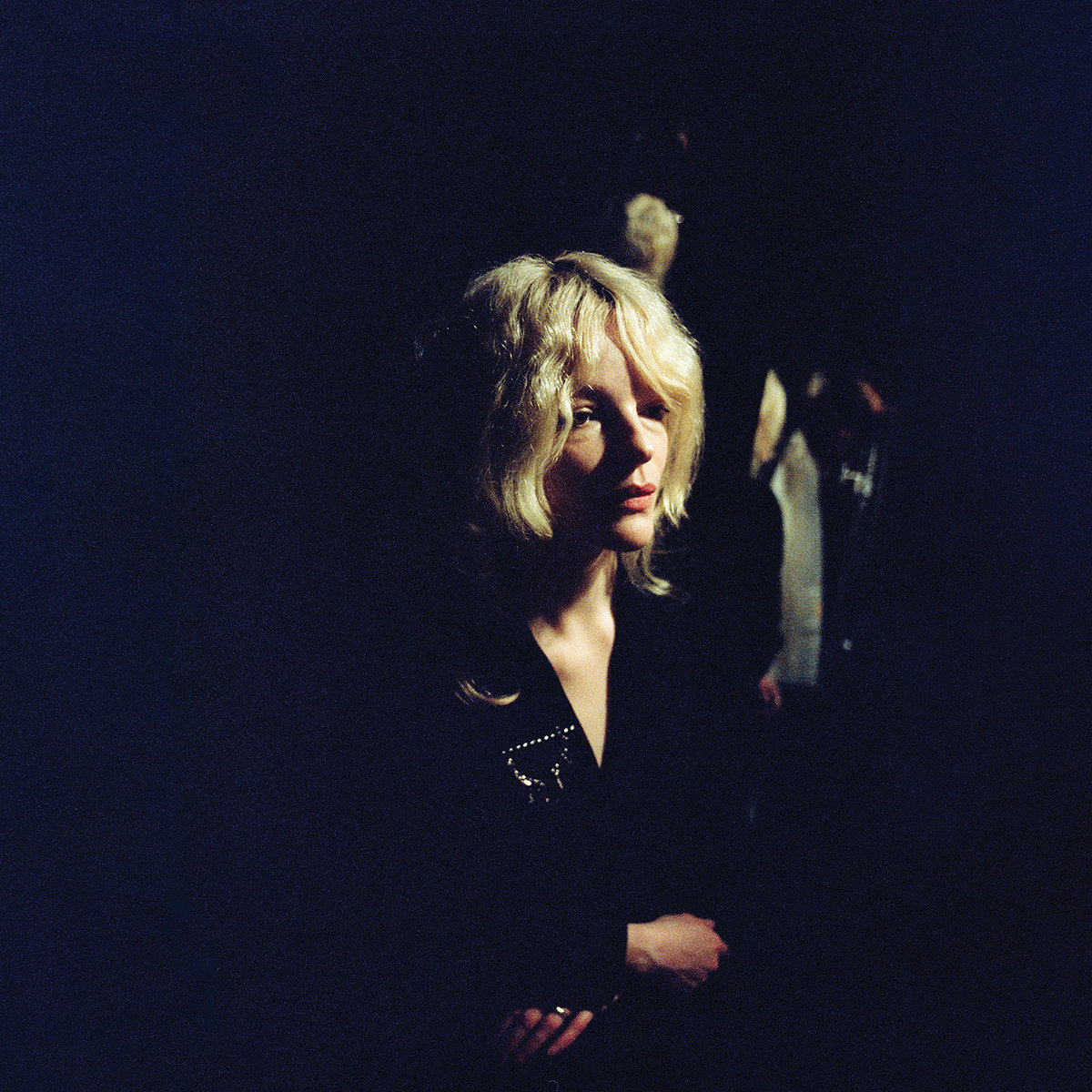Five years since her 2019 breakthrough album Quiet Signs, Jessica Pratt marks her reappearance with the exquisite Here In The Pitch. It’s her vision of “big panoramic sounds that make you think of the ocean and California”, a bit like a soundtrack to an unwritten David Lynch film. Here she ruminates on the underbelly of California, dark characters from Los Angeles’ strange, seedy history, and the bleak end of the hippy era is explored, as she peers across the sunsetting horizon of the bay. Pratt sketches her broadest productional palette yet, a widescreen ambition that retains the intimacy of 2012’s self titled debut and 2015’s On Your Own Love Again, but frames each of these nine songs quite beautifully. The title refers to both pitch darkness and bitumen, the black viscous substance that forms deep below the surface of the earth.
Each track is woven with a tapestry of timpani, glockenspiel, baritone saxophone, and flute yet this orchestration never sounds too much retaining a subtlety and cavernous space. It allows her fantastic vocals, vivid couplets, and bittersweet melodies to radiate. They might simmer with an unspoken despair amd darkness, but also hold a compassion for others and the self at the same time.
Working once again at Gary’s Electric Studio in Brooklyn with her collaborators, the multi-instrumentalist/engineer Al Carlson and keyboardist Matt McDermott, Pratt enlisted the rhythm duo of bassist Spencer Zahn and percussionist Mauro Refosco (David Byrne, Atoms for Peace) to help realise her vision, alongside contributions from Ryley Walker, Peter Mudge (Mac Miller, Kendrick Lamar), and Alex Goldberg. Burnished by light melodies and heart-swelling instrumentals that offer the kind of uplifting moments redolent at moments of classic Phil Spector‘s girl group records, the best ’50s jazz, Scott Walker‘s early solo albums and Judy Garland‘s weathered majesty.
“Life came and went and you didn’t land where you thought you would” Jessica Pratt says of the elegant opener ‘Life Is‘ as she paints an impressionistic paean to the vagaries of ambition. A percussion roll nods to the grand, orchestral style of ’60s pop hits like the Walker Brothers’ ‘The Sun Ain’t Gonna Shine Anymore’, that drum sound in slow motion as she mellifluously slides down this captivating melody. “But I also feel like it’s a statement of intention”, she notes. It’s a steadying of one self when you have stumbled, Pratt says of the song. “It’s the third act and you’re trying to climb back on the horse before it gets dark“.
‘World on a String‘, is heartbreaking with Pratt gracefully exploring her lower register with longing and her band crafting a backdrop of daubing keys, brushed acoustic guitars, and a subtle sweep of arrangements ripe with sighing strings and an array of soaring hooks. She sings “I used to want for what your desolation hadn’t come by / And as your seconds spark our turning off and turning up now … I want to be the sunlight of the century / I want to be a vestige of our senses free”. It’s glorious. Pratt possess a voice that can break hearts, and lift them up again. A voice that’s beautiful and bruised in equal measure, that resides with a wistful longing and holds hope in its breast, she sounds like she has access to the vocal prowess of an entire girl group all at once.
The subtle ‘Get Your Head Out’ pairs gently plucked acoustic guitars and muted strings with Pratt’s wonderful vocals; it sounds classical yet resolutely personal at the same time, staring out of the window and wondering what will be. The swaying ‘By Hook or By Crook’ has a gentle bossa nova flavour, juxtaposed with a narrative about the dark menace of a unnamed figure.
The quiet grandeur of ‘Empires Never Know’ is beautiful, sighing strings, plaintive pianos house Pratt’s solitary vocals that embrace failure and melancholia; yet the clouds are clearing in the early morning sky and she has never seen so clearly the fallacies at the heart of the business, with a voice that isn’t just haunting but haunted. It’s a torch song where the torch is flickering.
Gorgeous closer ‘The Last Year’ dances in the moonlight of a waltzing midnight revelry, wistful verses tip-toeing across the rooftops as a solitary as Audrey Hepburn‘s version of ‘Moon River‘, with a soft shoe strum and shuffling pianos and call and response backings that swing along, before it all unfurls into a Roy Orbison-style tearjerker in the last portion.
“I think it’s gonna be fine / I think we’re gonna be together / And the storyline goes forever,” she offers, as she disappears with her arm in arm into the sunset, ending on a “weirdly” hopeful note to end on as the final credits roll on a stunning record that often drifts down dark back alleyways, but never loses hope for a return of the sunlight in the distance, a silver lining in the darkest of skies.




